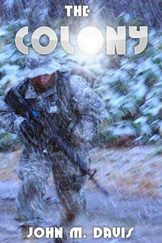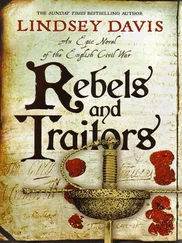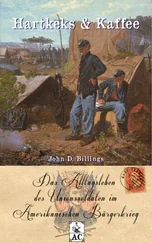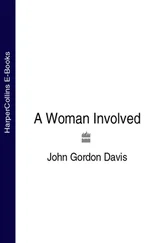Harker watched her go with regret. As her cab disappeared she twiddled her fingers over her shoulder at him. He grinned and waved. Then he pulled out his cellphone and dialled Clements.
‘The eagle is on her way back,’ he said.
‘I’m clear,’ Clements replied.
‘Anything new?’
‘Some.’
‘So, drop everything around to me tonight.’
It was a wistful Harker who walked through Central Park, sat in the Sherry-Netherland’s bar and drank a row of whiskies. He had spent a lovely day with a lovely young woman and he wanted to savour it – and he was going to report none of it to Felix Dupont.
But when he got back to his apartment there was a coded message from Dupont on his answering machine, ordering him to proceed to Washington the next day for a conference. The following Saturday Harker could not meet Josephine Valentine as arranged because he was preparing to commit murder.
Colonel Felix Dupont, Director of Region One of the Civil Cooperation Bureau, ran a good, small hotel called the Royalton in a side street not far from Pennsylvania Avenue. It had only fifty rooms and the place was rather British: the interior was half-panelled in dark mahogany, the reception area had potted palms. Hunting trophies adorned the walls, antique chandeliers hung from the ornate ceiling. It had a handsome horseshoe bar called Churchill’s, also fitted out in mahogany with dark booths. All the bar staff were busty ladies – Felix Dupont didn’t hire any other kind. Churchill’s did good trade. The Royalton had no restaurant so it was inexpensive by Washington standards and therefore popular with travelling salesmen and husbands cheating on their wives. It was a profitable little hotel because of the low overheads, and its administration was undemanding, which left Dupont plenty of time for his covert Civil Cooperation Bureau duties.
Felix Dupont was a man of about fifty with dark bushy eyebrows over a round, bearded face. He had piercing blue eyes that could be jolly. He was a devout Afrikaner, but an Anglicized one from Cape Town. He had gone to the best private school of British persuasion and had even considered going to Oxford University before he opted for a career in the South African army. He had a very good military reputation. Harker respected his abilities but didn’t like him. The man was an unmitigated racist. The antagonism was mutual: Dupont respected Harker’s record as a soldier but he resented his Sandhurst background, his British culture and manners. Ninety years ago Dupont’s father and grandfather had fought the likes of Harker’s in the long and bitter Boer War, his grandmother and most of her children had perished of disease and malnutrition in the British concentration camps along with twenty-six thousand other Boers. If Dupont had had his way Harker would have been transferred to Region Two, London, where he could ‘ponce about with those English sonsabitches’. Now Dupont had a nasty job for Harker, codenamed Operation Marigold, and he relished the man’s reaction.
‘Jesus.’ It was the first time in his CCB career that Harker had been ordered to kill anybody.
Dupont waited, amused, his blue eyes hooded.
‘How?’ Harker demanded.
‘Softly-softly. We want to know what exactly these guys are planning before we bump them off – who their accomplices are, where they are, et cetera. And we want all the documents they may have in their possession. So before you hit them you record their party talk with a long-range listening device which the CIA will provide.’ He smiled wolfishly. ‘Then, when the dear boys are sleepy and go to bed, you burst in there and shoot the shit out of them. You then collect up every document you can find, every scrap of evidence in their wallets and briefcases, then you plant explosive charges and you blow them all to Kingdom Come.’ He added, ‘In fact you not only blow up the house, you also strap explosives to the bodies and blow them to smithereens too, so there’s no possibility of identification afterwards.’
Jesus. ‘And supposing I don’t hear anything incriminating on the listening device? Supposing they’re not planning sabotage?’
Dupont said, ‘You just listen until they’re getting ready for bed, then you attack. First you lob a few stun grenades through the windows, then burst in the back and front door simultaneously.’
Harker shook his head grimly. ‘But how do we know this tip-off is reliable? The identity of the targets, for starters. Who exactly in the CIA gave you the information? They’ve been known to be wrong in the past.’
‘You have no need to know who. Just take my word for it – and my orders.’
‘But how do we know they’re plotting sabotage inside South Africa?’
‘I repeat, you have no need to know. Suffice it to say the CIA have informers amongst the Cuban military. The ANC guys have just completed a course in urban terrorism in Havana. Brigadier Moreno is the Cuban army’s top intelligence officer in Angola.’
‘But,’ Harker said, ‘why the hell are these guys meeting in America? This is very hostile territory for them.’
‘Yours not to reason why, Major. Just accept the CIA’s information gratefully. Suffice it to say they’re here under false identities and they’re here for good reason.’
‘But does the Chairman know about this?’
‘You take your orders from me, Major!’ Dupont said sharply. ‘But, yes, he knows. And approves.’
Harker did not like this. He had killed plenty of men on the battlefield without compunction but he had never killed in cold blood.
‘It’s a golden opportunity,’ Dupont said.
Harker could see the military desirability of the action: an opportunity to kill two top Cuban officers meeting three senior ANC officials trained in urban terrorism to discuss sabotage strategies within South Africa was not to be missed. He just wished it wasn’t he who had to do it, particularly on American soil. ‘And where is this ANC safe-house where they’re meeting?’
‘It’s a Russian safe-house. It’s a farmhouse, in a lonely part of Long Island, New York. No other houses nearby. The CIA have given us a plan of the place.’ He tapped a roll of architectural drawings. ‘And skeleton keys.’
‘Why the hell don’t the CIA do the damn job themselves if they’re so keen to be helpful?’
Dupont was enjoying Harker’s anxiety. ‘Because they want to keep their noses clean. They want us to do their dirty work for them.’ He added: ‘They’ll blame the job on the anti-Castro exile community in Miami.’
‘But why me? I’m not an assassin. You’ve got plenty of other operatives who could do the job, why me?’
‘You received training in termination techniques, didn’t you? You signed the fucking oath of faithful service?’
‘But the Chairman told me I wouldn’t have to get my hands bloody!’
‘Well the Chairman was wrong, wasn’t he? Things have got a bit tougher since he recruited you.’ He glared. ‘And if there’s any insubordination you’ll be posted back home. And court-martialled! And you can kiss your high-brow Harvest House goodbye. Do you hear me?’
Court-martialled? Harker clenched his teeth: it wasn’t an offence under the Defence Force Act to refuse to commit murder on foreign soil. But losing Harvest House? He glanced back at Dupont, then muttered: ‘I hear you.’
Dupont sat back. ‘Jesus Christ,’ he glowered, ‘here we have the opportunity to get rid of two top Cuban officers, Sanchez and Moreno, the two top bastards who’re killing our boys in the bush, and they’re meeting three ANC swines to plot murder of innocent civilians with their bombs and sabotage – and you’re squeamish!’
Harker glared at him. ‘I fully recognize them as legitimate military targets – I also went to war-school. I would bump them off joyfully if I could get near enough to them in the war zone. But you’re damn right if you mean I’m scared of doing it in the civilian environs of America – sir. If anything goes wrong I’ll be tried for murder. Sir .’
Читать дальше












